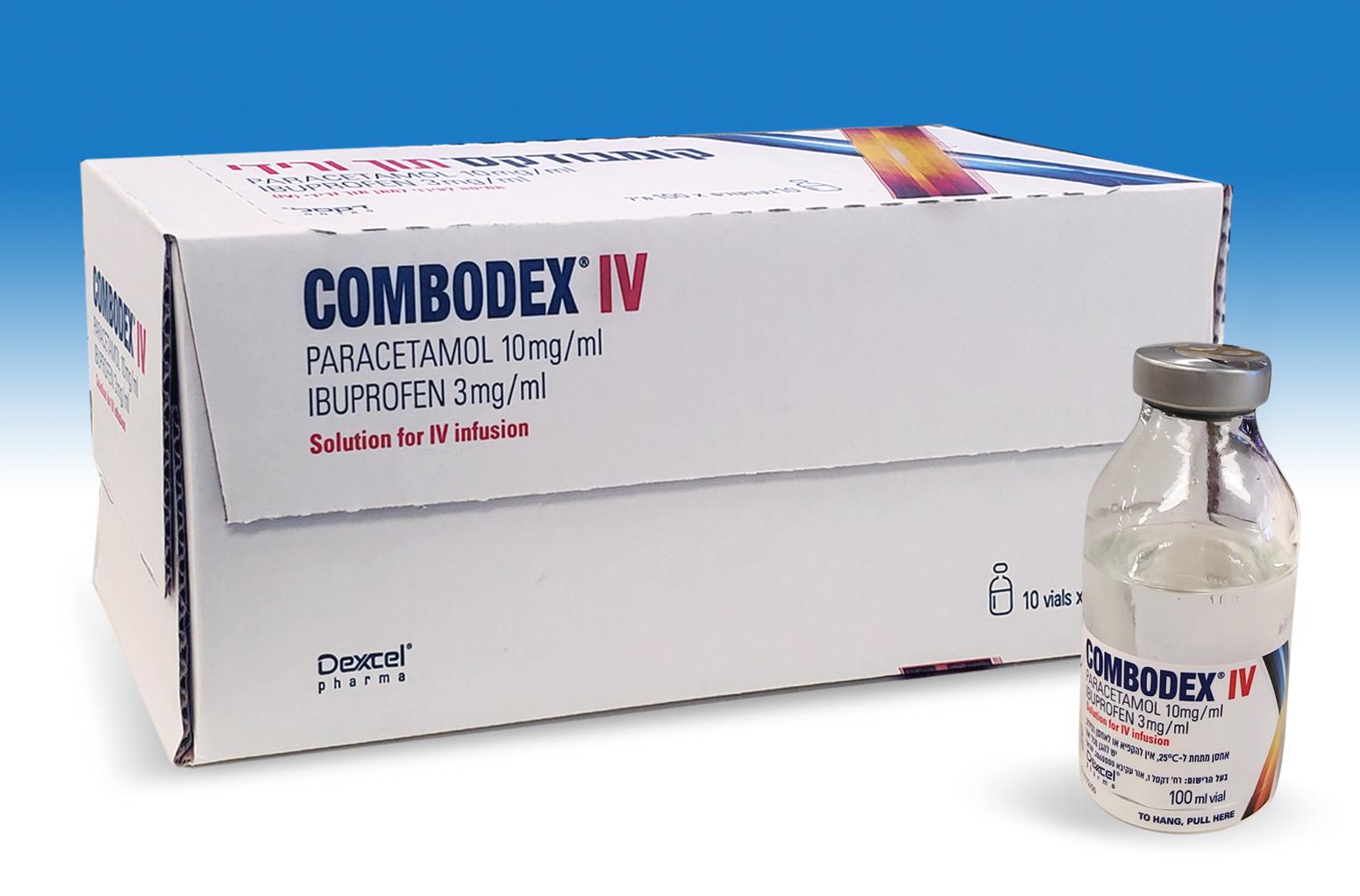Quest for the right Drug

קומבודקס תוך ורידי COMBODEX IV (IBUPROFEN AS SODIUM DIHYDRATE, PARACETAMOL)
תרופה במרשם
תרופה בסל
נרקוטיקה
ציטוטוקסיקה
צורת מתן:
תוך-ורידי : I.V
צורת מינון:
תמיסה לאינפוזיה : SOLUTION FOR INFUSION
עלון לרופא
מינוניםPosology התוויות
Indications תופעות לוואי
Adverse reactions התוויות נגד
Contraindications אינטראקציות
Interactions מינון יתר
Overdose הריון/הנקה
Pregnancy & Lactation אוכלוסיות מיוחדות
Special populations תכונות פרמקולוגיות
Pharmacological properties מידע רוקחי
Pharmaceutical particulars אזהרת שימוש
Special Warning עלון לרופא
Physicians Leaflet
Pregnancy & Lactation : הריון/הנקה
4.6 Fertility, pregnancy and lactation Pregnancy There is no experience of use of this product in humans during pregnancy. Because of the ibuprofen- component Combodex IV is contraindicated during the third trimester of pregnancy (see below). For ibuprofen Inhibition of prostaglandin synthesis may adversely affect the pregnancy and/or the embryo/foetal development. Data from epidemiological studies suggest an increased risk of miscarriage and of cardiac malformation and gastroschisis after use of a prostaglandin synthesis inhibitor in early pregnancy. The absolute risk for cardiovascular malformation was increased from less than 1%, up to approximately 1.5 %. The risk is believed to increase with dose and duration of therapy. In animals, administration of a prostaglandin synthesis inhibitor has been shown to result in increased pre- and post-implantation loss and embryo-foetal lethality. In addition, increased incidences of various malformations, including cardiovascular, have been reported in animals given a prostaglandin synthesis inhibitor during the organogenetic period. From the 20th week of pregnancy onward, ibuprofen use may cause oligohydramnios resulting from foetal renal dysfunction. This may occur shortly after treatment initiation and is usually reversible upon discontinuation. In addition, there have been reports of ductus arteriosus constriction following treatment in the second trimester, most of which resolved after treatment cessation. Therefore, during the first and second trimester of pregnancy, ibuprofen should not be given unless clearly necessary. If ibuprofen is used by a woman attempting to conceive, or during the first and second trimester of pregnancy, the dose should be kept as low and duration of treatment as short as possible. Antenatal monitoring for oligohydramnios and ductus arteriosus constriction should be considered after exposure to ibuprofen for several days from gestational week 20 onward. Ibuprofen should be discontinued if oligohydramnios or ductus arteriosus constriction are found. During the third trimester of pregnancy, all prostaglandin synthesis inhibitors may expose the foetus to: cardiopulmonary toxicity (with premature constriction/closure of the ductus arteriosus and pulmonary hypertension); renal dysfunction (see above); the mother and the neonate, at the end of pregnancy, to: possible prolongation of bleeding time, an anti-aggregating effect which may occur even at very low doses; inhibition of uterine contractions resulting in delayed or prolonged labour. Consequently, Combodex IV is contraindicated during the third trimester of pregnancy (see section 4.3 and 5.3). For paracetamol A large amount of data on pregnant women using paracetamol indicate neither malformative, nor foeto/neonatal toxicity. Epidemiological studies on neurodevelopment in children exposed to paracetamol in utero show inconclusive results. If clinically needed, paracetamol can be used during pregnancy however it should be used at the lowest effective dose for the shortest possible time and at the lowest possible frequency. Breastfeeding Paracetamol is excreted in breast milk but not in a clinically significant amount and available published data do not contraindicate breastfeeding as long as the recommended dosage is not exceeded. Ibuprofen and its metabolites can pass in very small amounts into breast milk. With therapeutic doses during short term treatment the risk for influence on infant seems unlikely. In light of the above evidences it is not necessary to interrupt breastfeeding for short-term treatment with the recommended dose of this product. Fertility The use of the product may impair female fertility and is not recommended in women attempting to conceive. In women who have difficulties conceiving or who are undergoing investigation of infertility, withdrawal of the product should be considered.

שימוש לפי פנקס קופ''ח כללית 1994
לא צוין
תאריך הכללה מקורי בסל
לא צוין
הגבלות
לא צוין
מידע נוסף
